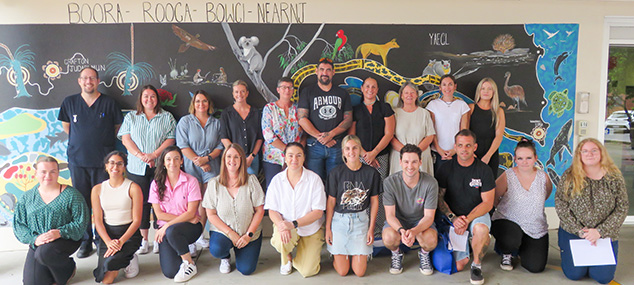
More than 190 graduate nurses and midwives will start work across Northern NSW Local Health District (NNSWLHD) this year, providing a significant boost to local health services.
Across the state, more than 3,400 graduate nurses and midwives will commence work in the NSW public health system.
NNSWLHD Director of Nursing and Midwifery, Katharine Duffy welcomed the graduates and thanked them for choosing a rewarding career with NNSWLHD.
“These new nurses and midwives will play a vital role in our region’s busy health services – providing patients with high quality, compassionate care,” Ms Duffy said.
“The graduates will gain invaluable experience across a broad range of clinical settings, as well as in community healthcare.
“We’re pleased to be welcoming a record number of new graduate nurses and midwives across the District this year, and to also offer these staff permanent roles which support our efforts to grow and train a sustainable local health workforce.
“Our nursing and midwifery service has some incredible mentors and teachers who will nurture these new graduates to develop in their chosen specialties.
“Depending on their interests, they’ll have the opportunity to take part in excellent research projects or develop their leadership skills to take their healthcare, and their careers, to the next level.”
The NSW Government is undertaking an ambitious plan to strengthen the state's health workforce, including through:
-
Implementing safe staffing levels of nurses and midwives beginning in our emergency departments;
-
making permanent 1,112 nursing roles temporarily funded by the former government;
-
abolishing the wages cap and delivering record pay increases for nurses, paramedics and other health workers as well as salary packaging;
-
beginning to roll out 500 additional paramedics in regional, rural and remote communities; and
-
increasing the rural health workforce incentive scheme package from $10,000 to up to $20,000 for recruitment to our hardest to fill roles
-
Introducing a total of 12,000 tertiary health study subsidies of $4,000 a year over three years for newly commencing students, or one off $8,000 for existing students paid upon commencement in a role in NSW Health, to assist with the cost of study and to attract health graduates to work with the NSW public health system.
For more information on careers in nursing and midwifery, visit the NSW Health website.